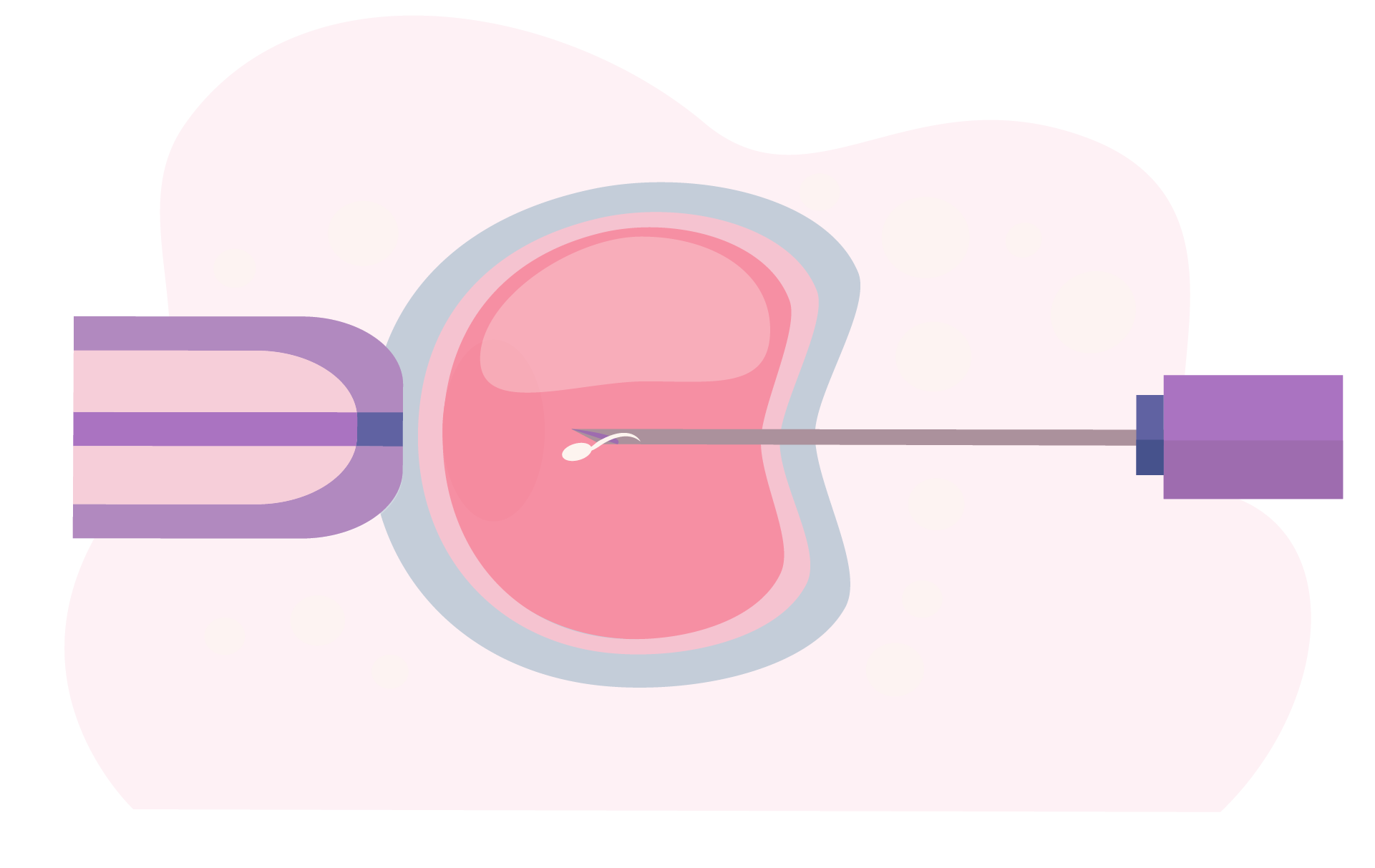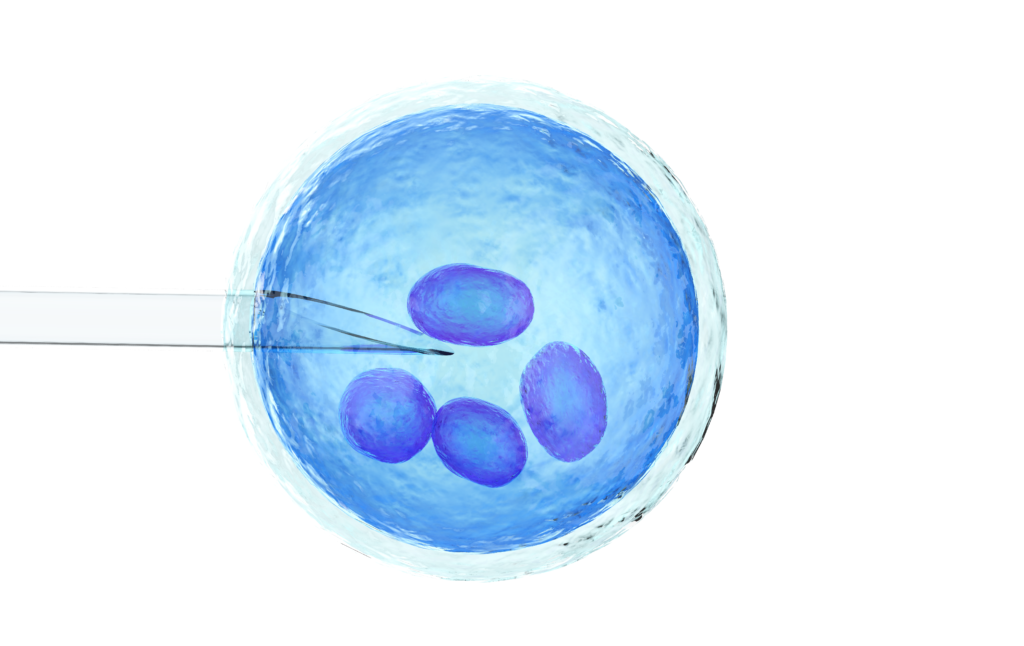
Are you not ready to conceive a child at the moment but want to keep the option open for the future? Are you worried that waiting till you are ready might affect your fertility and decrease your chances of having a child in the future?
What if I told you there’s a simple procedure that can safeguard your chances of becoming a parent when you’re ready in the future? This is a procedure called Fertility Preservation. Let’s get into some of the basic questions about fertility preservation and clear up any doubts that you might have.

What is fertility preservation?
Fertility preservation is saving or protecting an egg to have a biological child in the future; it involves freezing the egg, sperm, embryo, ovarian tissue or testicular tissue in hopes of conceiving a child. Fertility preservation can be commonly seen among people whos fertility is compromised due to some medical conditions, infertility and wishes to delay having a child due to personal reasons.
What are the available preservation options?
There are several options that both male and females can opt for depending on their condition and their requirements
Fertilisation Preservation for male:
Sperm freezing:
This is the most effective way of fertilization preservation and it can be done for individuals as young as 13 years old. A sample of semen which contains the sperm for fertilization is frozen . It can be achieved through several ways. Through natural ejaculation, medication that help ejaculate, vibratory stimulation that trigger ejaculation or even electroejaculation where a mild electric current is used to induce ejaculation. The frozen sperm can also be donated to other people who are in need for a sperm donor
Testicular tissue freezing
This option is for those people who do not have viable sperm in their semen.The testicular tissue is collected from the individual from which sperm can be extracted. This method is particularly useful for young people who are unable to ejaculate
Radiation shielding
This method is useful for those who are undergoing treatments that involve radiation. A lead shield is placed to protect the reproductive organs from being damaged by the radiation. A plate like lead shield is placed for women whereas a cup like shield is placed around the testicles for men. Although the radiation damage cannot be completely avoided through this method, it provides significant protection.
Fertility Preservation for women:
Egg freezing:
Egg freezing is a process where unfertilised eggs are frozen for future use. The process begins with injecting hormones daily for around 10 days to stimulate the eggs in the ovary. Once its matured to be extracted, a needle is inserted to the ovary under sedation to extract the unfertilised eggs. The eggs are then either directly frozen or fertilised before freezing
Embryo freezing
Embryo freezing is a process where a fertilised egg is frozen. The procedure includes removing the eggs from the ovaries and fertilising them with sperm. The fertilized eggs are then frozen and stored for later use. The frozen embryo can be thawed and implanted into the wall of the ovary during IVF cycle. If there are more than one fertilised egg during the IVF cycle, the remaining frozen eggs can be used for future attempts when the first cycle is not successful. The fertilised eggs can also be used to conceive additional children or else it can be donated to other women who are struggling to conceive.
Ovarian tissue freezing
Ovarian tissue freezing is an option for people who are unable to freeze their eggs due to many reasons such as the inability to ovulate. Through this process, the eggs can be extracted from the ovarian tissue. This is a viable option for young people who haven’t started ovulating yet.
Ovarian transposition
This is a surgical procedure where the ovaries and sometimes the fallopian tube is surgically repositioned to an area where it would be less affected by radiation. When people are going through radiation therapy, it has high chances of affecting the reproductive organs leading to infertility. so these organs are repositioned to an area which may not be exposed to the radiation like the pelvic region which is better protected. The position will vary from person to person. Even if the fallopian tubes are damaged during this procedure, conception is still possible through IVF treatment.
Who should consider fertilisation preservation?
There are several reasons why people prefer to opt for fertility preservation. Some of them include:
Age:
Freezing your eggs at younger ages when you are most fertile, can be beneficial. women over the age of 35 find it hard to conceive as the fertility rate declines with age. If you plan to have children in later stages of your life, you can certainly opt for preservation.
Cancer:
When people go through treatment for cancer like chemotherapy, radiation or drugs used for treatment, it may lead to infertility. As a precaution people tend to preserve their sperms and eggs to have the chance of having a biological child after the treatment is done
Personal reasons:
There are many reasons why people prefer to have children in later stages which might include career, education, partner, mariage et cetera. Preservation ensures that you have an option to become a parent in the future.
Reproductive issues:
The couple may be going through reproductive issues like endometriosis, uterine fibroids or other genetic disorders which may reduce your chance of fertility
Transgender care:
For individuals planning to undergo hormonal therapy or reconstructive surgery, there is a chance of partial or full loss of fertility. This can affect a person’s chance of having a biological child. Fertility preservation before they transition retains the option of having a biological child in the future.
Armed forces:
For military personals fertility preservation before deployment is an option to ensure the possibility of having a family in the future in case if they get any injuries that might result in being unable to conceive a baby
Family planning:
If you’re not ready to build a family now or if you’re waiting for the right time, you can freeze your eggs while you are fertile. Family planning is a difficult task that needs a lot of thought and commitment from your side. So some people might find it hard to know when they’re truly ready. By the time they decide, age or medical conditions might have impacted fertility. So, preservation is always a safe option
How much does it cost?
Fertility preservation can be done in Kerala for a lower price when compared to other places in India from the best IVF hospitals. The procedure of IVF with embryo freezing will cost around 1.2 to 2 lakhs whereas oocyte freezing can come around 1.1 to 1.5 lakhs at Credence IVF
How long can the embryos be stored?
The frozen embryos can be stored in IVF centers or labs for up to 10 years. When the couple chooses to have the child, the embryos can be thawed and IVF treatment can be performed.
What are the risks associated with fertility preservation?
Fertility preservation is a safe procedure that does not result in any adverse effects. It is mostly minor medical procedures which do not involve any risks. Many people might wonder that the children conceived through these procedures will face adversities in the future but it is proven that the children born with the help of fertility preservation do not carry any birth defects or congenital disabilities
Fertility preservation at Credence
The journey of stepping into parenthood is made seamless with the best IVF hospital in Kerala. At Credence IVF, we have highly specialised doctors, innovative technology and the latest range of treatments making you feel secure with our support. Every case is unique and needs a customized plan. At Credence, we make sure to completely analyse your conditions and suggest a solution which is specific to your needs whether it’s male or female, we are here to provide you with utmost care.



